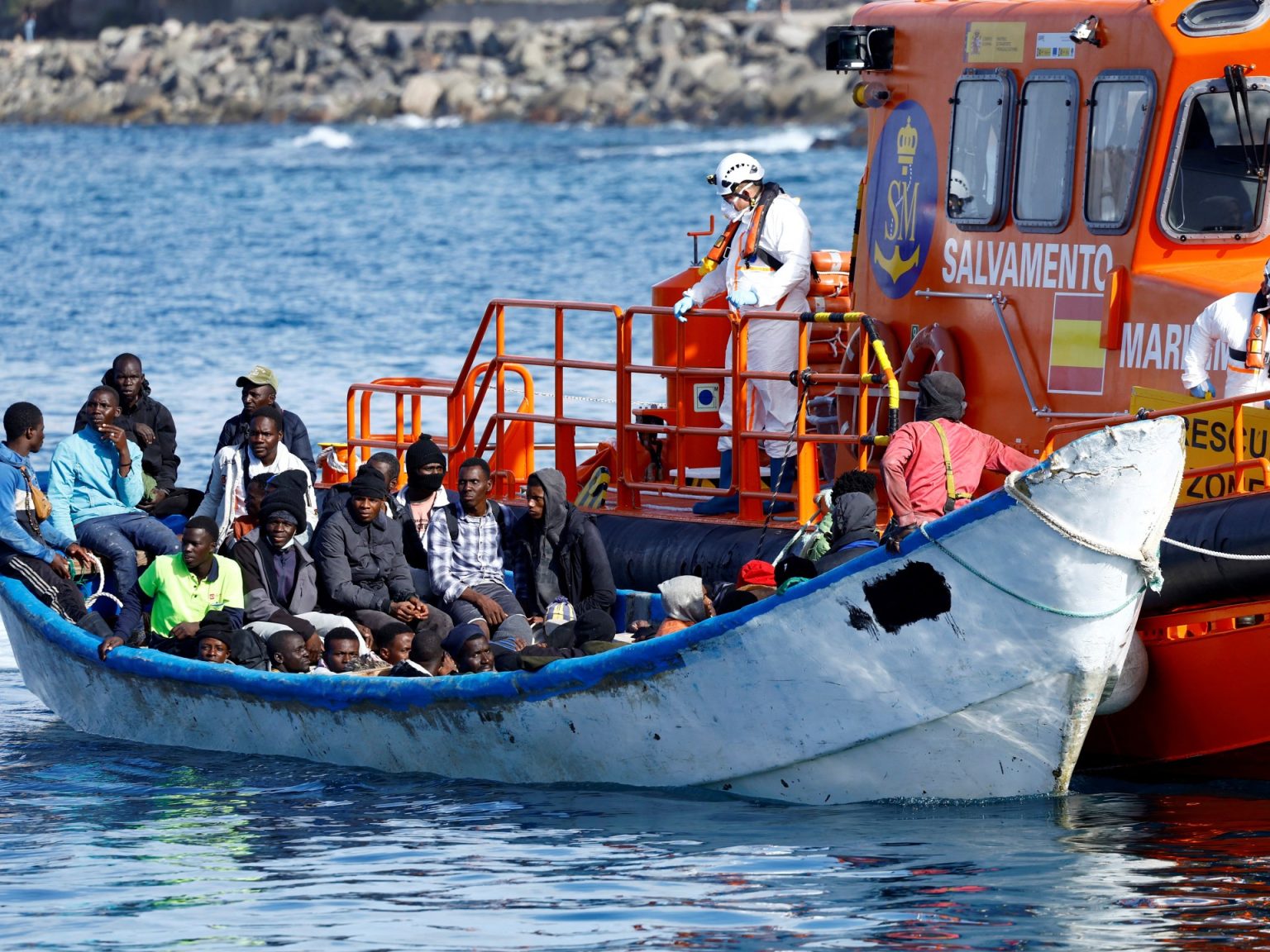Spain received a significant influx of migrants and refugees in 2024, with a total of 63,970 people arriving through irregular routes. The Canary Islands received the majority of these arrivals, with 46,843 people reaching the country through the increasingly dangerous Atlantic migration route. This represents an increase from the previous year, when 56,852 people arrived in Spain through irregular routes. The European country has become a key entry point for migrants seeking refuge in Europe, with many facing perilous journeys to reach their destination.
The increase in arrivals through the Atlantic route is particularly concerning, as it is known to be the deadliest migration route in the world. Departing from countries such as Senegal, The Gambia, Mauritania, and Morocco, migrants face treacherous waters and limited resources for rescues. The reasons for embarking on these risky journeys are varied, including years of conflict in the Sahel region, high rates of unemployment, and the impact of climate change on farming communities. These push factors drive many to attempt the crossing in search of safety and opportunities in Europe.
Despite an overall decrease in irregular crossings into the European Union in 2024, the Atlantic route saw a 19% increase in arrivals. Frontex, the EU border agency, reported a 40% decrease in irregular crossings overall, but noted that more people from countries such as Mali, Senegal, and Morocco were attempting to make the dangerous journey across the Atlantic. This trend underscores the challenges faced by migrants seeking a better life in Europe and the dangers they face along the way.
Tragically, the toll of lives lost at sea continues to rise, with at least 69 people perishing in a recent boat capsizing off the coast of Morocco. A report by NGO Caminando Fronteras revealed that 10,457 migrants died or went missing while attempting to reach Spain by sea in 2024, representing a 50% increase from the previous year. The use of unseaworthy boats, treacherous waters, and a lack of resources for rescues have all contributed to the surge in fatalities, highlighting the urgent need for improved safety measures and support for those risking their lives to reach Europe.
Migrant aid groups such as Caminando Fronteras and Walking Borders have called attention to the lack of action by European governments and the criminalization of migrants, which they argue has contributed to the rise in deaths at sea. They accuse authorities of prioritizing immigration control over the right to life, leading to unnecessary tragedies and loss of life. The need for a coordinated and humanitarian response to the migrant crisis in the Mediterranean and Atlantic regions is clear, as the number of arrivals and fatalities continues to rise, underscoring the urgency of addressing the root causes and providing assistance to those in need.
The challenges faced by migrants and refugees seeking safety and opportunities in Spain and Europe highlight the complex dynamics of migration in today’s world. The need for a comprehensive and compassionate response to the ongoing crisis is clear, as thousands of people risk their lives each year to escape conflict, poverty, and environmental challenges in their home countries. Addressing the push factors that drive migration, improving safety measures for those making the journey, and prioritizing the protection of human rights are crucial steps towards creating a more just and sustainable approach to migration in Europe and beyond.













